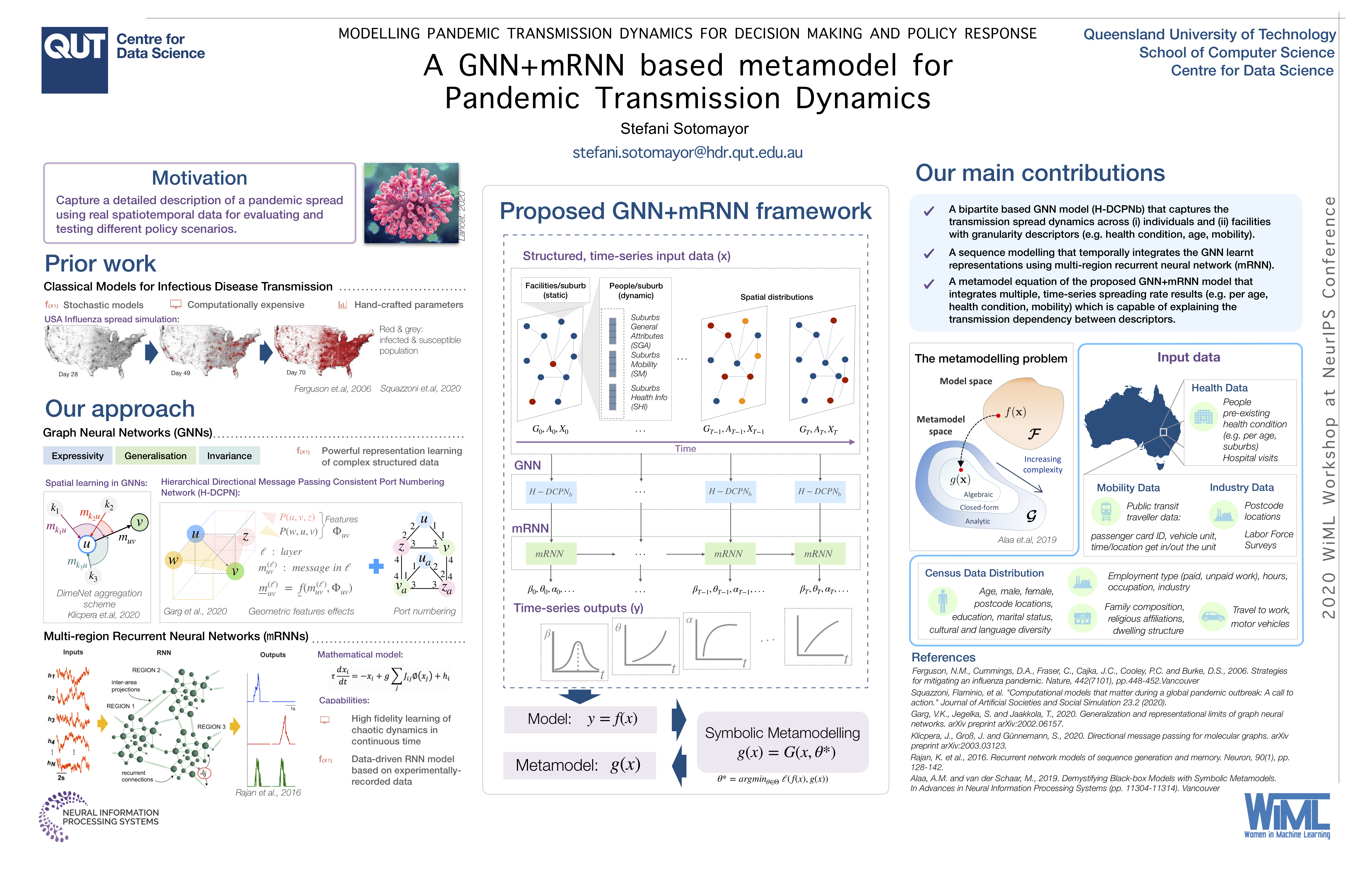 I’m a PhD student at QUT Centre for Data Science and School of Public Health & Social Work , Faculty of Health, Queensland Institute of Technology, Australia, advised by Associate Professor Darren Wraith and Dr Susanna Cramb . My research focuses on epidemic modelling and complex networks, with great emphasis on artificial intelligence (AI) and neural network models. Also, I am a neuroscience enthusiast.
I’m a PhD student at QUT Centre for Data Science and School of Public Health & Social Work , Faculty of Health, Queensland Institute of Technology, Australia, advised by Associate Professor Darren Wraith and Dr Susanna Cramb . My research focuses on epidemic modelling and complex networks, with great emphasis on artificial intelligence (AI) and neural network models. Also, I am a neuroscience enthusiast.
More broadly, I am interested in encompassing bleeding-edge AI technologies, the power of Data Science, and healthcare digital transformation by applying my engineering background for developing integrated systems that generate actionable insights, to drive decision-making and engage a culture of trustworthiness for the benefit of society.
You can contact me at lsotomayorv 'at' uni 'dot' pe
Neural Networks for Epidemic Modelling

My main focus is to capture a detailed description of a epidemic spread using real spatiotemporal data for policy decision-making. Particularly, this project targets people distribution and mobility behaviour analysis along a specific space/time dimension. My recent poster describes the application of artificial neural networks, GNN + mRNN, to represent a heterogeneous population using symbolic metamodelling approaches to explain the epidemic transmission dependency between descriptors, presented at the 34th Conference on Neural Information Processing Systems (NeurIPS 2020) , 15th Women in Machine Learning Workshop (WiML 2020).
Actionable Intelligence to Sustainable Change

Inequalities around the world are being hugely marked by pandemic and natural disasters, regions like the Andean America show the lack of resources in access to healthcare and basic services. In this context, leveraging digital transformation for social good by developing new approaches for biosignals processing would help clinicians to early diagnose diseases via basic communication throught telephones. This research goal aims to reduce technical complexity and lead positive impact on society.

Reliability and efficacy of complex systems modelling are key features for decision-making process. Such modelling highly depends on how uncertainty is measured and clearly explained for real-world representations of heterogeneous systems.

Commitment to periodically promote a variety of projects to support the most needed in vulnerable situation from developing countries.
World Health Organization WHO
Centers for Disease Control and Prevention CDC
 I’m a PhD student at QUT Centre for Data Science and School of Public Health & Social Work , Faculty of Health, Queensland Institute of Technology, Australia, advised by Associate Professor Darren Wraith and Dr Susanna Cramb . My research focuses on epidemic modelling and complex networks, with great emphasis on artificial intelligence (AI) and neural network models. Also, I am a neuroscience enthusiast.
I’m a PhD student at QUT Centre for Data Science and School of Public Health & Social Work , Faculty of Health, Queensland Institute of Technology, Australia, advised by Associate Professor Darren Wraith and Dr Susanna Cramb . My research focuses on epidemic modelling and complex networks, with great emphasis on artificial intelligence (AI) and neural network models. Also, I am a neuroscience enthusiast. 